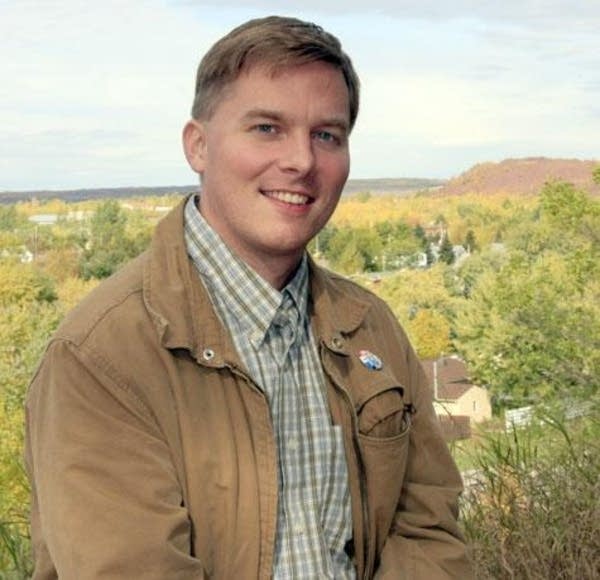When everyone else was springing ahead and falling back, he found a way to beat the system
Go Deeper.
Create an account or log in to save stories.
Like this?
Thanks for liking this story! We have added it to a list of your favorite stories.

Aaron J. Brown is an Iron Range writer, radio commentator and college instructor. He is the author of the blog MinnesotaBrown and the book "Overburden: Modern Life on the Iron Range."
From 1996 to 1998, the years I was in senior high school, I worked weekend overnight shifts as an easy listening DJ at 97.9 WEVE in the iron mining town of Eveleth, Minn.
I'd come home from school on Friday afternoon, prepare a bowl of Campbell's soup and cheese sandwich, take a sleeping pill while eating and fall asleep watching tapes of David Letterman, "The X-Files," Conan O'Brien or a movie like "Sneakers." I'd wake up with the alarm at 11, drink a pot of coffee, sneak some cigarettes from my dad and go to work at the radio station for the midnight to 6 a.m. air shift. (Sometimes I'd change into a suit in the station bathroom, compete in a speech meet on Saturday, take another pill and do the same thing Sunday.)
In summary, this period in my life opened up my concept of time to the widest possible definition a teenage mind could handle.
Turn Up Your Support
MPR News helps you turn down the noise and build shared understanding. Turn up your support for this public resource and keep trusted journalism accessible to all.
I am reminded of this as the end of daylight-saving time approaches this weekend. Unless you work overnights you never have to contend with the reality of daylight-saving time. You change your alarm clock before you go to bed and pretend you went to bed early or late, depending on whether it's fall or spring. You persist in a lifelong delusion.
If you've ever worked in radio you know that the program log is the prime directive, declaring the list of songs to play and when to do news, weather, commercials and antennae readings. You sign your name on the log as "operator," accepting that if anything goes seriously wrong during your time you will be fired.
Like all young radio people I would get in trouble sometimes for gently pushing the edges of the program log decorum, sneaking a Kenny Rogers song in where it did not belong, saying stupid things after stupid news stories, or being cute with the weather (do not be cute with the weather). But, by and large, I followed the program log — until one day in the spring.
It was then I realized that when they say "lose an hour" for daylight-saving time, they really mean lose an hour. The vintage programming software that the program director used had generated an hour of programming for the 2 a.m. hour, with songs weather, news and public service announcements. However, that hour did not actually exist. There was no 2-3 a.m. this day, only a 1-2 and a 3-4.
I wrote "None" on the ghost page in the log and signed my name.
I didn't give this much thought until the next fall, when the opposite problem occurred. Instead of there being no 2 a.m. hour, there would be two such hours. When the clock struck 2 a.m. it went back to 1 a.m. again. This time, the program log was missing a page.
For one glorious hour, fate averted its eyes from free will. There was the assumption of news at the top of the hour and the top of the next, but nothing else was foretold. I wasn't just the operator; I was the controller.
I kept my music within spitting distance of the format. This was a choice. My boss was a night owl, after all. I did play "The Gambler." And I doubled up on CCR, including "Fortunate Son" and "Someday Never Comes," two tracks that normally weren't allowed. I had an excuse ready if he called, which he didn't.
I played "American Pie," which was usually played only when an announcer needed to make an extended bathroom visit or to run out behind the building to whack snow out of the satellite dish with a stick. I played the sprawling rock epic on purpose, smoking cigarettes in the cold out on a deck that overlooked a tiny forest between a car dealership and Highway 53.
When 2 a.m. arrived the second time, I returned to the log, completing a 12-6 a.m. shift that had been seven hours long. I did something similar the following year, but after that I moved up to evening shifts. This means that I got the bonus hour and never had to give it back.
Every year since, I've returned to the notion that we lose these hours in our sleep. I've come to understand that we lose all the hours in our sleep.
I'm glad for the one I wrung out of the night when I was a younger man. I keep that hour to this day, and forever.




